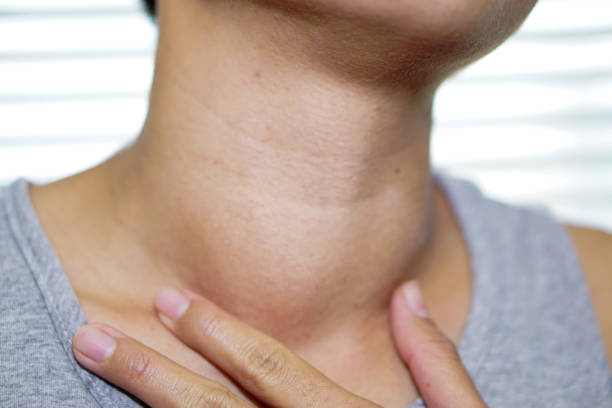Iodine Deficiency: Symptoms and Treatment
Iodine is an essential micronutrient that the body requires to maintain proper thyroid function and overall health. The thyroid gland, located in the neck, uses iodine to produce hormones that regulate metabolism and control growth and development. However, when the body doesn’t receive enough iodine, it can lead to a condition known as iodine deficiency.
Symptoms of Iodine Deficiency
Iodine deficiency can have a range of symptoms, many of which are related to thyroid function. Some of the most common symptoms include:
Goiter: Iodine deficiency can cause an enlarged thyroid gland, known as a goiter. This can cause a swelling in the neck that is visible and palpable.
Hypothyroidism: The thyroid gland requires iodine to produce hormones, and a lack of iodine can cause an underactive thyroid, also known as hypothyroidism. This can lead to fatigue, weight gain, cold intolerance, and depression.
Mental and physical developmental delays: Iodine deficiency during pregnancy can lead to developmental delays in children, including intellectual disability, stunted growth, and hearing loss.
Decreased fertility: Iodine deficiency can also lead to decreased fertility in both men and women, as well as an increased risk of stillbirth.
Dry skin: Iodine deficiency can lead to dry, scaly skin that may be itchy and uncomfortable.
Treatment for Iodine Deficiency
The treatment for iodine deficiency depends on the severity of the deficiency and the underlying cause. In most cases, supplementation with iodine is the most effective way to correct the deficiency. Some of the most common forms of treatment include:
Dietary Supplements: The most common form of treatment for iodine deficiency is to take an iodine supplement in the form of a pill, drops, or topical cream. These supplements can be purchased over-the-counter at most health food stores and drugstores.
Iodized Salt: Iodized salt is a common source of iodine in the diet. Most people can get the recommended daily intake of iodine by consuming iodized salt in their diet.
Seaweed and Seafood: Seaweed and seafood are also good sources of iodine. Seaweed, such as kelp, can be added to soups, salads, or stir-fries for an extra dose of iodine. Seafood, such as shrimp and cod, can also be consumed to help meet your daily iodine needs.
Fortified Foods: Some foods, such as bread and cereal, are fortified with iodine. These foods can also help you meet your daily iodine requirements.
It is important to note that too much iodine can also have negative effects on the body, so it is important to consult a healthcare provider before starting any supplementation regimen. The provider can determine the right dosage and type of supplement to meet your individual needs.
In conclusion, iodine deficiency can lead to a range of symptoms, many of which are related to thyroid function. The most effective way to correct the deficiency is through supplementation with iodine, either through dietary supplements, iodized salt, seaweed and seafood, or fortified foods. Consultation with a healthcare provider is recommended to determine the right course of treatment for your individual needs.

 Home
Home Health
Health Diet & Nutrition
Diet & Nutrition Living Well
Living Well More
More












